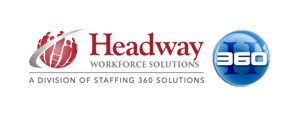So, you finished your interview, went home excited about your future with the company, but now what? Maybe it’s been a few days (or more) and you haven’t heard anything. While it’s definitely true that the hardest part (the interview) is over, there’s still work to be done to ensure that you stay on top of your interviewers’ minds. In this post, we’ll share interview follow-up email templates that will win over recruiters and hiring managers and benefit your application.
1. The Thank You Note: 1 Day After the Interview
After your job interview, the first follow-up should be a thank you email within the first 24 hours. Keep these things in mind when writing your note:
- Be brief, friendly, and conversational. You’ve already had the job interview, so let your gratitude and personality show a little bit.
- Restate your interest in the job and any relevant details on why you’re qualified.
- Thank the potential employer for their time as job interviews can require employers to set aside a lot of time, often forcing them to push off work.
- The thank-you note is also an excellent opportunity to add any significant information you may have forgotten to say in the interview.
Here is an example thank you email:
Hi [Interviewer Name],
Thank you so much for meeting with me today. After learning more about the position, I’m very excited for the opportunity to join your team and help [ Insert a bullet from the original job posting] for [Company Name].
I know my years of experience of working on [sales, retail etc.] would greatly benefit your company.
Please keep me posted on the status of the hiring process. I look forward to speaking with you soon.
Best,
[Your Name]
2. The Follow-Up Email: A Few Weeks After the Interview (or the Discussed Timeframe)
Making contact again after a few weeks of silence can feel more difficult. You might worry that checking in will make you seem annoying, or worse, desperate. If you approach your follow-up carefully, you can come off as a diligent and interested. Here are some things to keep in mind:
- Don’t assume you didn’t get the job. Sometimes the hiring and interview process can take longer than expected.
- Wait for the established timeline to pass. If the hiring manager or interviewer gave an approximate timeline of the interviewing and hiring process, wait until that date has passed to follow-up.
- Give a gentle nudge. Just because they haven’t reached out doesn’t necessarily mean that they’ve forgotten you, or don’t want to move forward with you — it just means they might need a little reminder. Send a brief note that comes off as friendly and professional, not scolding.
Here is an example of a follow-up email
Dear [Interviewer Name],
I hope you’re doing well. I wanted to follow up about the [job title] role. I really enjoyed meeting you and the team last week, and I’m very interested in the opportunity. I’d love to know if there’s any further information I can provide for your decision-making process.
Thank you,
[Your name]
3. The Stay in Touch Email: The Final Email
Even if you don’t get the job, it might be useful to have this employer in your network. Rather than seeing your relationship with the employer as a failed job interview and lost opportunity, treat them as a valuable new colleague and contact. Here are some tips to remember:
- Build a relationship. This means keeping the conversation going by periodically sending articles or information that might be relevant to them, congratulating them on recent accomplishments, and thanking them for their replies.
- Do the research, and if appropriate, add the recruiter or employees you spoke with on LinkedIn.
- Also, be sure to follow up and update your LinkedIn interests and be sure to follow their company page on LinkedIn.
But remember, don’t overdo it! Be cognizant of whether you’re being helpful or a nuisance and always be genuine. The key is to remain professional, proactive, and useful, not pushy or over-eager.
Related Posts
How to Answer the Most Daunting Interview Question
The Ultimate Guide to Crushing Your Next Interview
